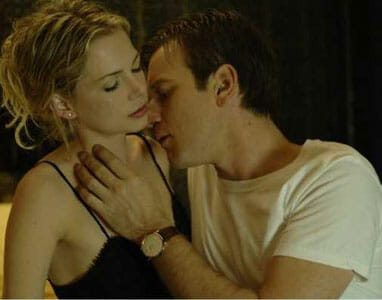Deception

Release Date: April 25
Director: Marcel Langenegger
Writer: Mark Bomback
Cinematographer: Dante Spinotti
Starring: Hugh Jackman, Ewan McGregor, Michelle Williams
Studio/Run Time: Twentieth Century Fox, 108 mins.
Deception, a new film starring Ewan McGregor and Hugh Jackman, is being billed as a steamy thriller, but most of the mist dissipates in the first half hour. McGregor plays Jonathan McQuarry, a junior accountant who’s auditing a law firm. He works well into the night, doesn’t have a family, and doesn’t have much of a social life, but Wyatt Bose (Jackman) can help. Wyatt’s been around the block, plays tennis, enjoys the company of the ladies, and—lucky for McQuarry—works at the firm being audited, or so it seems. The occasional cutaways to people who don’t seem to know Wyatt are none too subtle.
-

-

-

-

-

-

-

-

-

-

-

-

-

-

-

-

-

-

-

-

-

-

-

-

-

-

-

-

-

-

-

-

-

-

-

-

-

-

-

-








































